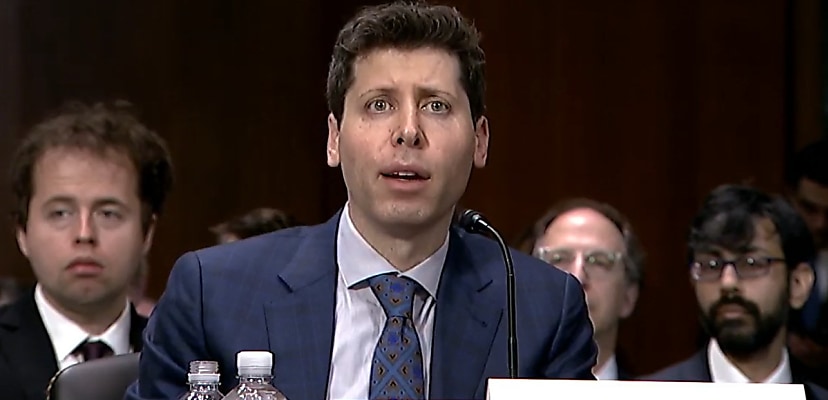Share this article on:
Powered by MOMENTUMMEDIA
Breaking news and updates daily.
The chief executive of ChatGPT creator OpenAI has expressed concerns about the potential risks that could arise with the development of AI.

Speaking in front of US Congress, OpenAI CEO Sam Altman said that while generative artificial intelligence (AI) is an incredibly powerful tool, government regulation would be necessary to curb the dangers it creates.
“I think if this technology goes wrong, it can go quite wrong, and we want to be quite vocal about that; we want to work with the government to prevent that from happening,” said Altman.
“We try to be very clear about what the downside case is and the work that we have to do to mitigate that.”
Altman said that new enforceable frameworks could be established by the US government, requiring AI models to meet specific safety standards while being evaluated by independent auditors and having to pass specific test models before launch.
“We think that regulatory intervention by governments will be critical to mitigate the risks of increasingly powerful models,” he said.
“For a very new technology, we need a new framework.”
Altman’s main concern related to weaponised disinformation, used to influence the opinions of individuals at an almost personal level.
“My areas of greatest concern [are] the more general abilities for these models to manipulate, to persuade, to provide sort of one-on-one interactive disinformation,” he said.
The OpenAI CEO said he was particularly concerned with the ability of AI to influence and compromise elections.
“Given that we’re going to face an election next year, and these models are getting better, I think this is a significant area of concern, [and] I think there are a lot of policies that companies can voluntarily adopt,” Altman said.
Members of the Senate judiciary committee were also extremely concerned with the risks that AI was creating.
Senator Richard Blumenthal listed a number of concerns, including the purposeful spread of disinformation, impersonation, deepfakes, harassment of women, and housing discrimination.
“For me, perhaps the biggest nightmare is the looming new industrial revolution, the displacement of millions of workers,” said Blumenthal.
Altman said that he agreed that the technology would have an impact on the job market but that there would be “far greater jobs on the other side”.
“I think it’s important to think of GPT as a tool, not a creature … GPT-4 and tools like it are good at doing tasks, not jobs. GPT-4 will, I think, entirely automate away some jobs, and it will create new ones that we believe will be much better,” he said.
Despite the concerns, Altman believes that the benefits that ChatGPT and generative AI has displayed to date far outweigh the risks they create, and he has said that OpenAI is continually working to ensure that AI is able to address some of the greatest challenges faced by humanity.
“OpenAI was founded on the belief that artificial intelligence has the ability to improve nearly every aspect of our lives but also that it creates serious risks that we have to work together to manage,” Altman said.
He added that OpenAI works hard to implement secure safety protocols and monitors AI activity before release.

Be the first to hear the latest developments in the cyber industry.